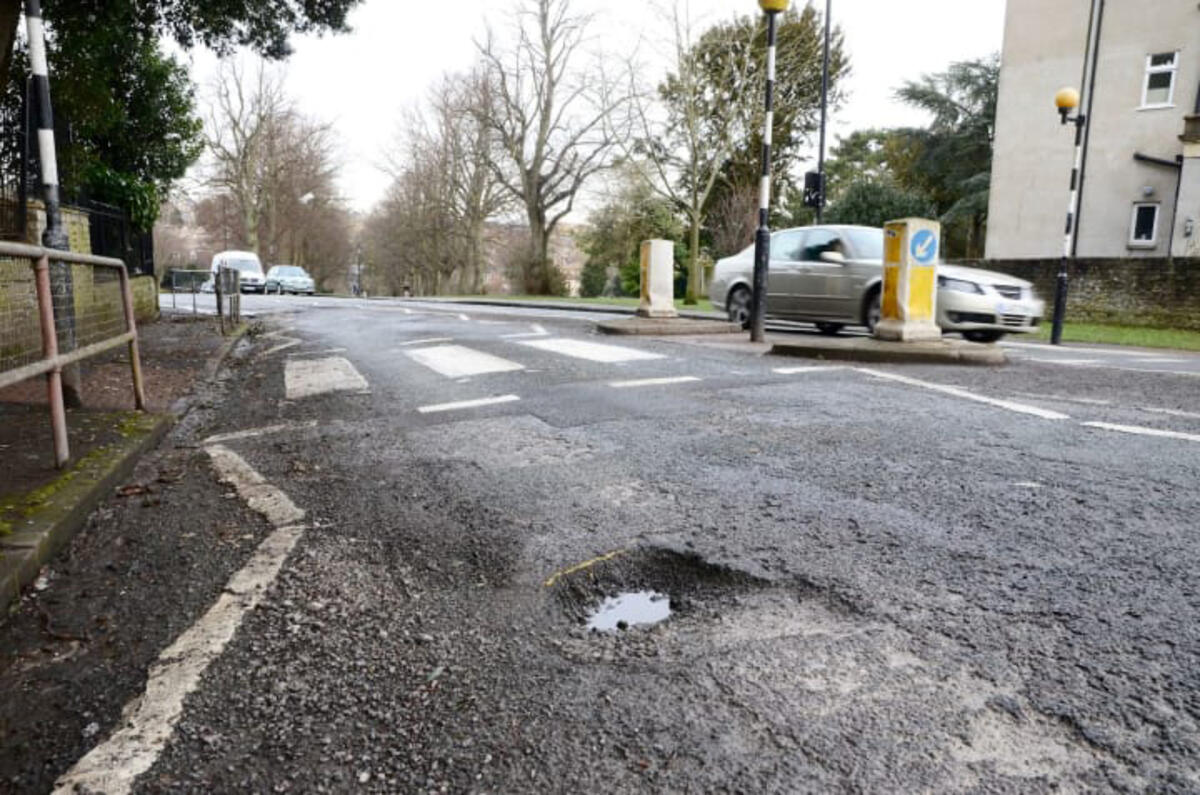The UK Government has confirmed that it will provide councils access to £100 million to help fix Britain's pothole-ridden roads.
Announced by transport secretary Chris Grayling, the money adds to the existing £75m in government funding already offered to councils from the Pothole Action Fund, as well as £46m for highways authorities. The Government estimates that about seven million potholes will be filled with this money.
The new fund was confirmed the week after the publishing of a report that said around 12% of UK roads are in poor condition. Aside from the recent cold snap, long-term underinvestment and ineffective government funding methods were cited as key contributions to the declining surface standards.
RAC roads policy boss Nicholas Lye said the report, which was produced by the Asphalt Industry Alliance (AIA), shows that “short-term funding and creating pots by which local authorities can bid for cash doesn’t appear to be addressing the root cause of the problem”.
AIA figures show that 24,496 miles of roads are in need of repair in Britain over the next year. The total budget shortfall to repair pothole-filled roads currently totals an estimated £556m, equating to a shortfall of £3.3m for each authority.
Potholes: how much they cost the UK and how they are fixed
The Government has said it is investing £6 billion in improving local roads, but the AIA claims that inconsistencies in allocated budgets make it difficult for local authorities to initiate long-term fixes.
“All of the average totals hide a wide disparity that exists between those seeing increased funding and others who have seen their budgets cut and funds diverted to other areas of council expenditure, notably education and social care,” the report said.
The report claimed that, even with effective funding, the issue is so vast that it “would now take 14 years to get local roads back into a reasonable steady state” – two years more than the previous AIA estimate – and cost £9.3bn.
The pothole in the Government's road repair plan
“As things stand, all road users are faced with the prospect of road surfaces falling into an even worse state, making for increasingly uncomfortable, expensive and, in some cases, downright dangerous journeys,” said Lye.





Join the debate
Add your comment
Civilisation
Anyone who has played the computer game civilisation recognises the truth in needing to fully find road maintenance from the day that you lay the road. You soon find that spending a small amount less means a huge amount more is needed in future years.
I remember as a new driver in the early 70s travelling with my parents to Austria by car. The French roads were a joke compared to what we then had. "Nids de poule" were everywhere (hens' nests, aka potholes). There were many diversions for major road building and repair., and we commented on how the continentals built all their roads above the surrounding land, and didn't dig down 6 feet first.
At the time the UK had been spending vast sums on new roads, but not allocating future funds for repair. Increasing government income from road tax allowed successive governments to pretend they had lots of income for other things like the NHS, not thinking to the future. Roads and bridge were built to last 50 years because by then it would be someone else's problem ;and we'd all be using flying cars anyway. Those roads all need replacing now, not repairing.
What about this..
Why can we not use people, who may be in the prison or in the probationary system, who may already have these skills? ...surely a little training and a day release under supervision would benefit the prison service, and the local authority.
Surely it will give a little respect back to the person asked to work for the greater good for a small incentive.
Up here in my town, prisoners can earn a wage from doing jobs, some of them are currently working on construction sites and i know of several council backed building initiatives were inmates at this very moment are on release training courses.
Why can this not be an option?
Purely from a Northern
Purely from a Northern Ireland perspective, having spent 32 years as a deeply frustrated L ocal Government Supervisor, supervising uncaring unsackable jobsworths mostly, and being kept on a clearly inadequate budget, while watching monies get splurged on expensive vote buying white elephants.
(i) Reorganise the financial yearend, to say end of Oct, that way the gritting, or not, gets done early in the year, if not, the money saved can be spent patching or resurfacing during the summer months, not during Feb and March in unsuitable weather, as is currently the caee.
(ii).Some private firms are very good, for instance our local FP McCann, are very good at roadbuilding and surfacing.
marcus